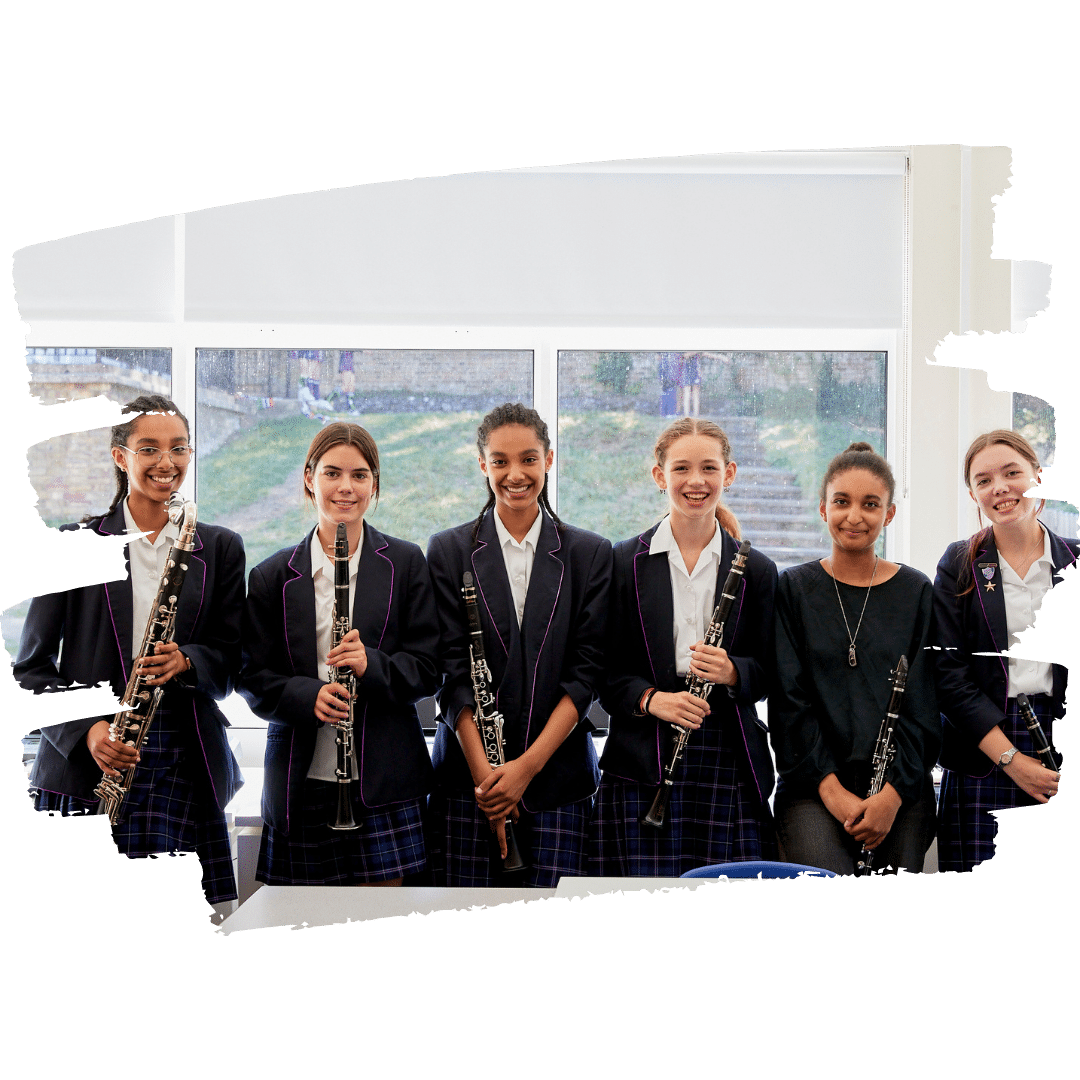Music (Year 8)


See Year 8s Music ‘Schedule of Learning’ for the 2025/26 academic year
| Topic | Sub-topic |
|---|---|
| Intro to Year 8 Music | Update what everyone plays; sort folders; revision of elements of music (thorugh listening extracts); singing |
| Melodic construction | Melodic Phrase – Pink Panther theme; students compose melodies using aaba phrase structure |
| Melodic Sequence; compose melodies with phrases & a sequence | |
| Motifs – Hill Street Blues | |
| Continue with motifs & Hill Street Blues | |
| Assessment task: melodic writing | |
| Theme & Variations | Introduce Theme & Variations – Mozart ‘Ah, vous dirai-je, maman’; introduce Drunken Sailor melody |
| Consider ways to vary Drunken Sailor; get into groups and start work on Drunken Sailor variations | |
| Continue work on Drunken Sailor Theme & Variations | |
| Continue work on Drunken Sailor Theme & Variations | |
| Record Drunken Sailor Theme & Variations | |
| African Drumming | Update what everyone plays; introduction to African drumming through listening / videos / ppt; intro to the different tones on djembe |
| Lilac sheets – Drunken Sailor; Revise tones on djembe and introduce some polyrhythmic compositions; composing using grid notation | |
| Further group djembe drumming; students get into groups to compose African-inspired polyrhythmic compositions; introduce call & response | |
| Group drumming; Continue work on polyrhythmic compositions – introduce improvisation | |
| Continue work on polyrhythmic compositions | |
| Record polyrhythmic compositions | |
| Programme Music | Whole tone scale |
| Lilac sheets – African drumming; recap whole tone scale and introduce Impressionism and Voiles; introduce Voiles composition topic | |
| Continue with Voiles composition | |
| Record Voiles compositions | |
| Programme Music -Sorcerer’s Apprentice; animal compositions | |
| Progamme Music | Update what everyone plays; Lilac sheets – Voiles; Introduce Vltava; students start River Thames compositions |
| Continue with River Thames compositions | |
| Revision of elements & Instruments of the Orchestra; continue with River Thames compositions | |
| Y8 exams (English, Maths, Science, Languages, Humanities) | |
| Year 8 Listening exam (open book) | Exam; Record River thames compositions |
| Club Dance Music / EDM | Introduction to dance music; what is EDM / Club Dance Music? Exploring dance bass lines; composing bass lines |
| Lilac feedback from exams; ance music structure: mix-in, break, loops etc; students start dance tracks in pairs on Garageband | |
| Continue with dance tracks | |
| Continue with dance tracks | |
| Complete dance tracks |
What will you study?
• Revision of Elements
• Melodic Construction
• Musical Structures – Binary, Ternary, Rondo
• Theme & Variations
• African Drumming
• Scales & moods
• Programme Music
• Programme Music
• Club Dance Music (Music ICT)
Useful tips and resources
• Explore as much music as possible through performing music, listening to music & experimenting with composing music
• There are many books on different types of music and music-making in the school library
• There are many resources on the SHS Music Resources Team on MS Teams
• There are numerous places online to explore different styles of music including Spotify, YouTube, Apple Music etc
• Wider listening / reading around the topics studied in lessons will enhance understanding – books, magazines, listening to the radio / podcasts, attending concerts, exploring the web will all be beneficial
What super curricular activities can KS3 students engage with at school?
• Aim to get involved in the co-curricular musical life of the school – there are a wide range of musical activities including choirs, orchestra, rock bands, various ensembles, music theatre etc – see the school ‘Co-curricular booklet’ for further details
• Consider taking up a musical instrument / having singing lessons – we have a number of visiting music teachers
• If you already play an instrument, keep going!
• Aim to attend / take part in some of the concerts, formal and informal, that take place throughout the school year (there is at least one concert every half term)
• Many students learn an instrument / have singing lessons outside school
• There are all sorts of musical ensembles that you can join outside school including bands, orchestras, church choirs etc
• If you play an instrument / have singing lessons, you may want to consider taking part in the activities organised by the local borough that you live in; e.g. the Merton Music Foundation or Sutton Music Trust
• Consider going to live concerts – there are many options in London such as the South Bank Centre, which features concerts of many different styles of music including free events and events that you can take part in
• The BBC Proms takes place every summer in The Albert Hall – all the concerts are on BBC Radio 3 and some are televised (or you could go and see the music live)
• Explore different styles of music on places like Spotify and YouTube
• During Year 8, you will be given access to an online music sequencer called Soundtrap (and if you have a Mac, you will have very similar software called Garageband). Experiment with creating your own music / remixing other people’s music
